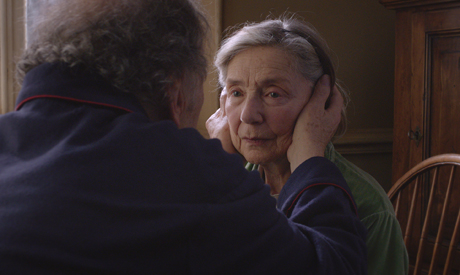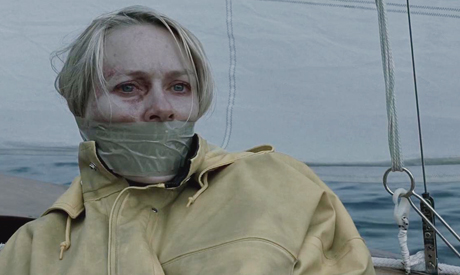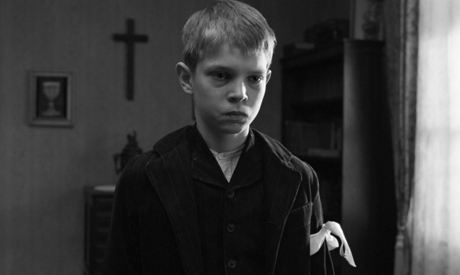The Panorama of the European Film would have been taking place some time this month. But, though the El Gouna Film Festival (23-31 October) was held only a month after its slated date and the Cairo International Film Festival is being planned, Covid has postponed the event to 13-22 January, as Zawya Art House, its organisers, announced this week.
In the meantime, to tide us over, a retrospective programme of films by the Austrian director Michael Haneke is being held 13-30. The first week featured four iconic films: Funny Games (2007), Amour (2012), The Piano Teacher (2001) and Caché (2005).

Amour
Born in 1942 to a German theatrical director and an Austrian actress, Haneke studied philosophy, drama and psychology at the University of Vienna and worked as a theatre director before making his debut The Seventh Continent in 1989.
He has since been recognised as one of the greatest artists cinema has known. Dealing with social isolation, melancholy, detachment, ferocity and dysfunction, his films – made in French and English as well as German – are both realistic dramas and provocative, unsettling statements on the contemporary human condition.
In Funny Games, a well-off American family – Ann (Naomi Watts), George (Tim Roth) and their preadolescent son Georgie (Devon Gearhart) – are accompanied by their golden retriever as, their fancy four wheel-drive towing a boat, they make their way to their holiday home in Long Island.
A seemingly ideal existence, the family vacation is disrupted when two young men, Paul (Michael Pitt) and Peter (Brady Corbett), appear at the door asking if they might borrow four eggs. Ann saw them at the garden of some friends’ house, and though those friends were acting strangely there is no reason not to trust that they are young golfers belonging to the same class and that they mean what they say. Polite and well spoken, they are dressed in white shorts and sweaters and canvas shoes and for some reason also white gloves.

Funny Games
Before long what starts as a brief squabble with George leading to a serious leg injury has developed into a hostage situation in which the two boys terrorise and torture the family for hours on end in the interest of “fun and games”, only to leave all three of them dead and move onto the next family. They refuse the offer of money, and appear to be motivated by sheer evil.
Unlike a horror or crime film, Funny Games proceeds as a drama and builds up its incredible tension not so much from suspense but from a fascination with evil itself. Haneke never gives a reason for the evil he depicts, leaving it up to the audience to make sense of what’s happening.
His Palme d’Or winning The White Ribbon (2009), set in a small German village during World War I, exposes the horror underlying patriarchal society by way of referring to the horror to come. Told by a schoolteacher who witnessed the events as a child, the story defies explanation even by its teller. When the village doctor falls off his horse because someone set up a trip wire, a series of crimes – burning barns, murdered children – begin to occur, and the evil underlying an apparently stable and secure life prefigures Nazism.
Likewise Cache, starring Juliette Binoche and Daniel Auteuil: its premise is how a peaceful couple might be terrorized by a series of surveillance videotapes found on their doorstep. But perhaps Haneke’s simplest statement to date is his second Palme d’Or winner, Amour (2012), set in Paris and focusing on an elderly French couple.
Starring two brilliant actors, Jean-Louis Trintignant and Emmanuelle Riva, the film opens with a shocking scene is an apartment door is smashed open and firemen enter and look around until, struck by the smell, they find the corpse of a lady in bed.

The White Ribbon
The action moves back to show Georges and Anne, former music teachers, having breakfast together. While talking to his wife, Georges suddenly notices she is completely frozen in her chair: when she comes to Anne cannot remember what happened, and it later becomes clear the problem is serious as she pours tea outside her cup for example.
Even as he depicts Georges’s love for Anne, Haneke reveals the coldness in the couple’s relationship and especially how alienated their self-centred daughter is from them, refusing to show any attachment even during her mother’s surgery. That is how, as the situation becomes more and more unbearable, Georges makes the impossible decision of ending his wife’s life...
*A version of this article appears in print in the 17 November, 2020 edition of Al-Ahram Weekly
Short link: